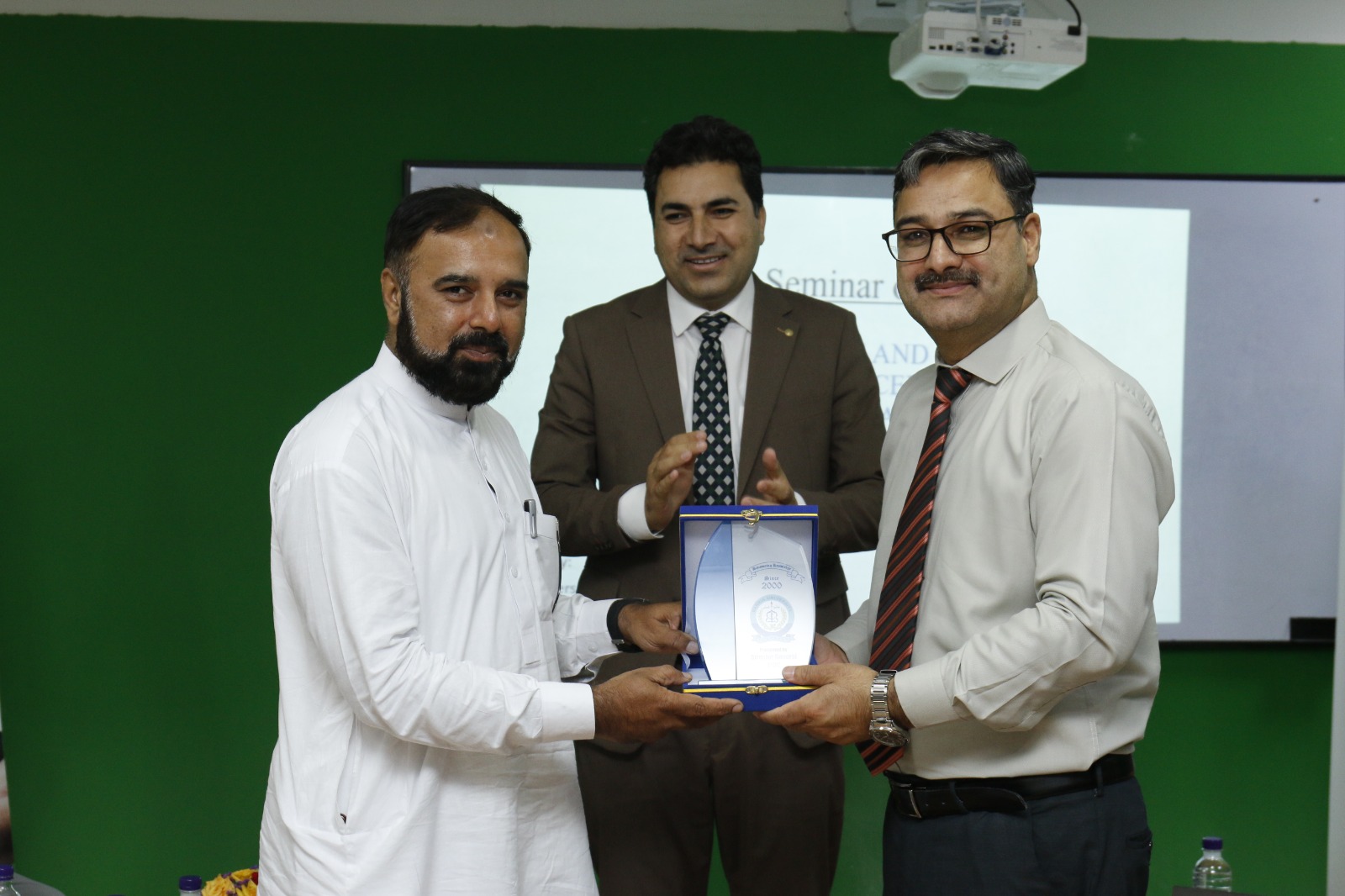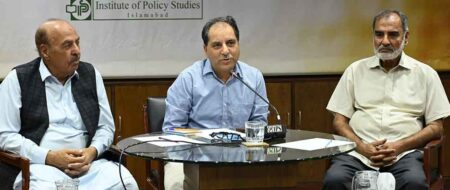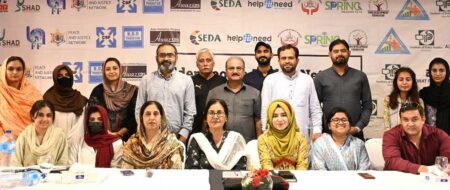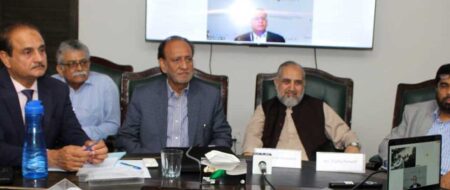‘Children and Child Protection Issues in Terms of Climate Change and Other Environmental Stresses’
Political will and integrated strategies termed key to enhancing child protection efforts
It is imperative to engage political leadership to foster greater responsiveness to child rights and child protection issues and address the lack of commitment among concerned officials to achieve meaningful progress in child welfare.
Additionally, a comprehensive and proactive strategy that integrates education, technology, policy, and community support is essential. By combining these approaches, we can create a safer and more enriching digital environment for children, ensuring their well-being and rights are upheld in today’s rapidly evolving digital landscape.
This was concluded during a session on ‘Children and Child Protection Issues in Terms of Climate Change and Other Environmental Stresses’ held at Bahria University, Islamabad, in collaboration with the Institute of Policy Studies (IPS) on May 21, 2024.
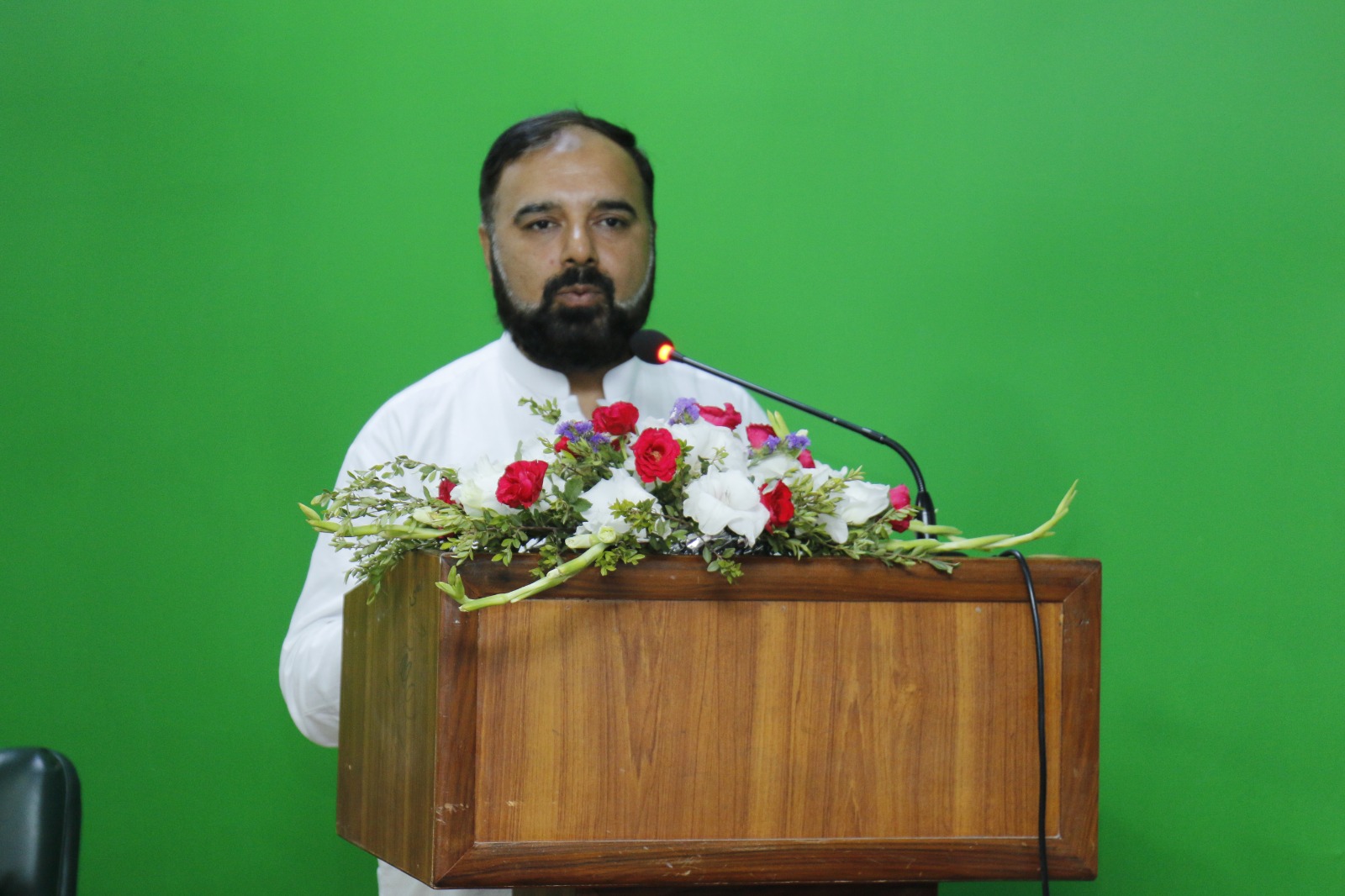
The session was addressed by Syed Nadeem Farhat, senior research fellow, IPS, Ameena Sohail, research associate, IPS, Khalid Naeem, senior member, National Commission on the Rights of Child (NCRC), Syed Ishtiaq Gilani, national coordinator for Child Rights Movement, Safiya Aftab, executive director, Verso Consulting, and Haris Ali Shah, assistant manager, Hashoo Foundation.
Nadeem Farhat briefed on key international conventions such as the Convention on the Rights of the Child, Convention on the Elimination of All Forms of Discrimination against Women, Convention on the Rights of Persons with Disabilities, Convention against Torture, and International Convention on the Elimination of All Forms of Racial Discrimination.
Elaborating on the global framework for protecting children’s rights, he underscored the importance of aligning national efforts with international standards and obligations. This holistic approach will not only enhance child protection but also promote social justice, equity, and inclusivity for all children.
He underscored that ensuring family protection, prioritizing the welfare of children, and grooming every individual for a healthier role in the life ahead have to be the caveats of any policy, approach, and initiative regarding children.
Pakistan has signed and ratified the Convention on the Rights of the Child and its optional protocols and has enacted dozens of laws to take care of various dimensions of young lives.
Ameena Sohail stressed that “every child matters” and ensuring children’s protection through a coordinated approach has become urgent in the digital age. She further said that promoting digital literacy and education, ensuring online safety and protection through cybersecurity measures, content filtering and monitoring are among the measures that would help children use gadgets for their wellbeing and progress. The mental and emotional health of the next generation can be guaranteed only through measures to balance screen time, address cyberbullying, and encourage positive online behavior.
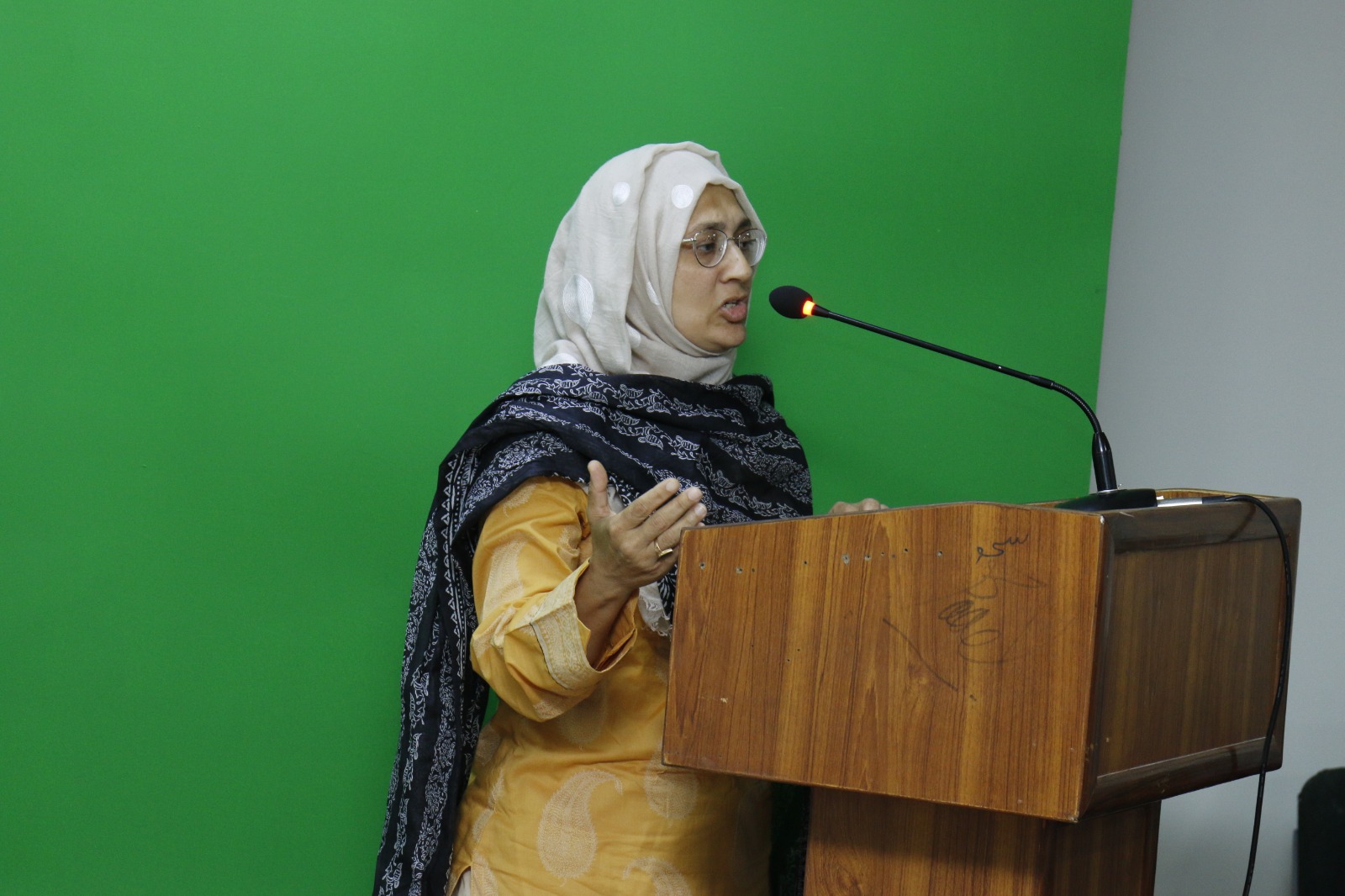
Additionally, providing access to educational resources, establishing robust legal and policy frameworks, and fostering community support systems are also essential. “While the use of technology is vital, it should not be allowed to take control of human lives and the future of the nation or even humanity,” she said.
Other speakers introduced various initiatives at the governmental and non-governmental levels to bridge the gap between the ideals of the Constitution of Pakistan, international and domestic law, and the ground realities.
Despite being the first Islamic country to ratify the UN Convention on the Rights of the Child, Pakistan struggles to protect its children, Ishtiaq Gilani deplored. Pakistan has a comprehensive legal and administrative mechanism to ensure the rights of children and, more particularly, guarantee child protection, but the gaps between policy and practice persist. Several issues including instances of marriage before the prescribed age limit are often the product of poor socio-economic conditions, particularly in the remote villages.
Safiya Aftab highlighted that economic pressures significantly contribute to high rates of child marriages and catastrophes like large-scale floods force parents to secure the future of their daughters by marrying them off, even at a young age. The dynamics for the marriages of young boys are different but are connected to socio-economic factors.
Sharing the details of multiple projects implemented by the Hashoo Foundation to protect children in flood and climate-change-affected regions, Haris Shah said to support these communities, it is important to harness the power of collaboration to involve all stakeholders including ulema and community influentials. He said climate adaptation and mitigation approaches should be child-centered and integrated to support immediate needs and build long-term resilience against climate impacts.
Khalid Naeem emphasized the critical mandate of NCRC of examining and reviewing policies and investigating violations of child rights. He said it is essential to acknowledge the link between climate change and child rights and promote child rights advocacy plans. Moreover, investing in adaptation measures that build children’s resilience to climate-related hazards and adopting a preventive approach by mitigating the drivers of climate change are crucial for long-term success.
